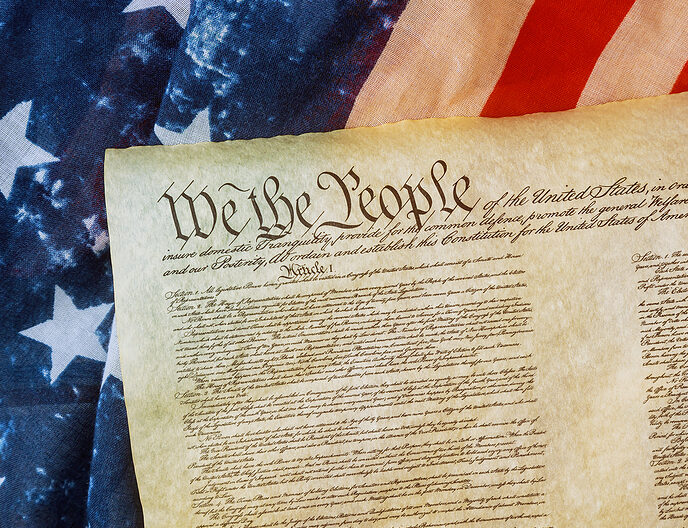In 1990, just months after the fall of the Berlin Wall and the collapse of communist rule in Eastern Europe, I attended a North Atlantic Assembly conference in Brussels, Belgium, on the future of the North Atlantic Treaty Organization (NATO).
The North Atlantic Assembly—renamed NATO Parliamentary Assembly in 1999—brings together legislators from the (now 32, then 16) NATO member countries.
Europe at the time was experiencing a renewed sense of freedom, confidence, and triumph, something it hadn’t experienced in decades. The key questions facing conference attendees were “Is NATO still necessary?” and “Couldn’t a country other than the United States lead it?”
Sen. William Roth (R-Del.) informed the gathered parliamentarians that, alas, the American Constitution required an American as commander-in-chief.
 A European delegate responded: “Well, that’s easy to fix. Just change your constitution!”
A European delegate responded: “Well, that’s easy to fix. Just change your constitution!”
I don’t recall the exact words that followed, but the look on Sen. Roth’s face was one of utter miscomprehension. Because Americans don’t just “change the Constitution.” I was witnessing a massive “failure to communicate.”
To most Europeans, and to citizens of virtually every other country in the world, constitutions are neither permanent nor venerable. Changing their constitution is no more consequential than rewriting a law or changing from Netflix to Hulu. You do it to suit the moment.
Essential to the American understanding of the rule of law, by contrast, is the near-sacred nature of the Constitution.
Every September, we observe the anniversary of this document, signed on Sept. 17, 1787. Many schools and colleges hold special events to commemorate the occasion. But there are no fireworks; it’s a solemn occasion, not one of riotous celebration, like the 4th of July.
The purpose of a constitution is to define the structure and rules by which a government operates. In the case of the United States Constitution, those rules are—contra to most other such constitutions—explicitly designed to limit the government’s authority.
In Federalist 51, James Madison, the “Father of the Constitution,” explained why. “If men were angels, no government would be necessary. If angels were to govern men, neither external nor internal controls on government would be necessary.”
The Constitution’s authors knew they were no angels. They also recognized that neither were those who typically sought power through government offices, and those who would come after them. As a result, the Constitution’s drafters established rules that assumed those in power would have mixed motives, would attempt to increase their power wherever they could, and would make mistakes. Even a casual observer today would have to agree with them.
September provides many examples of the Constitution’s everlasting importance.
In September 1862, for example, President Abraham Lincoln issued The Emancipation Proclamation, declaring the end of slavery in the rebellious Confederate states.
Ninety-five years later, in September 1957, President Dwight Eisenhower was still fighting that fight: ordering soldiers from the Army’s 101st Airborne Division to protect Black students trying to attend Central High School in Little Rock, Ark., a constitutional right upheld by the Supreme Court in 1954’s Brown v. Board of Education decision.
While we often speak of the Constitution as guaranteeing rights, it may be more accurate to say that it creates a framework against which we can defend our rights. In September 1942, for instance, Fred Korematsu was convicted of defying a Civilian Exclusion Order barring Japanese Americans from certain areas on the West Coast. His conviction was wrongly upheld in 1944 by the Supreme Court, but the principles in the Constitution didn’t go away.
Starting in 1980, lawyers and advocates renewed their constitutional campaign on Mr. Korematsu’s behalf, overturning his conviction and winning reparations for others like him. In 2018, the Supreme Court finally reversed its 1944 ruling, with Chief Justice John Roberts declaring that the prior ruling “has no place in law under the Constitution.”
Without the U.S. Constitution, the bedrock of American freedom, all our rights would be at risk. Today, we live in an era in which both parties claim that emergencies override principles. The Constitution is what stands in the way of such thinking, protecting us from ourselves.


